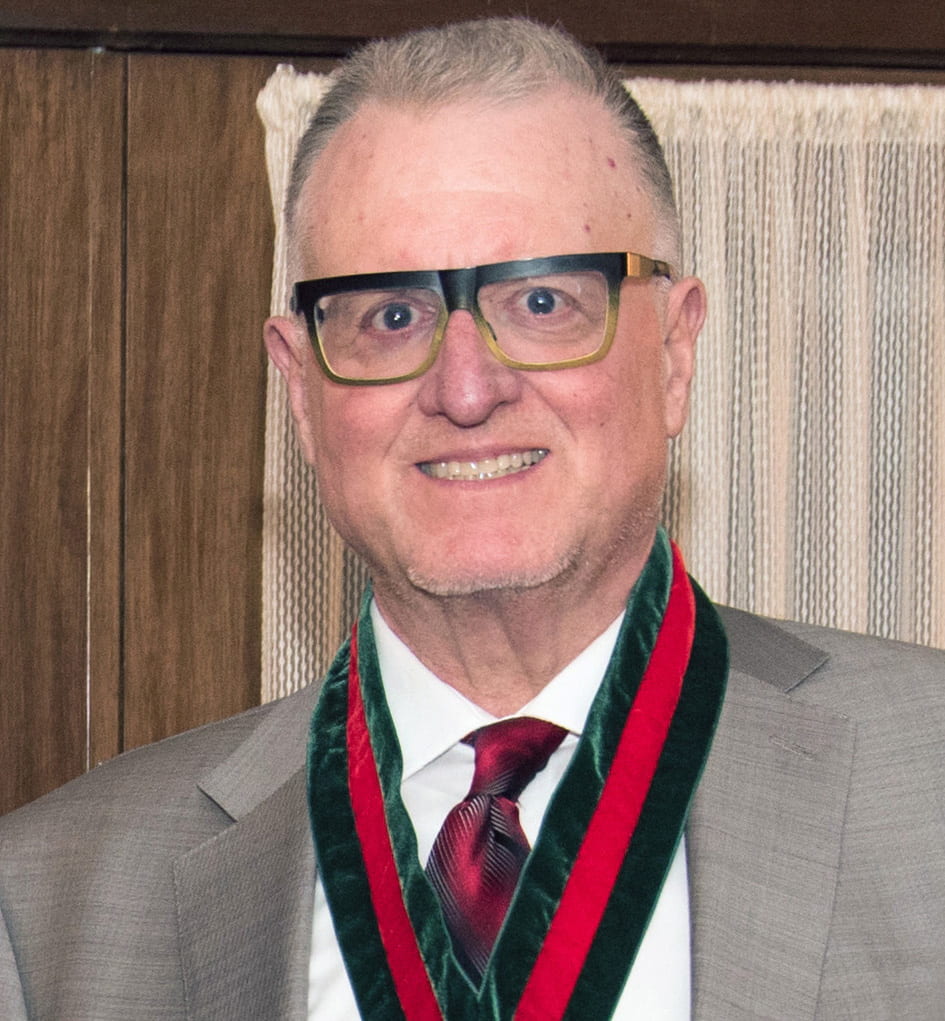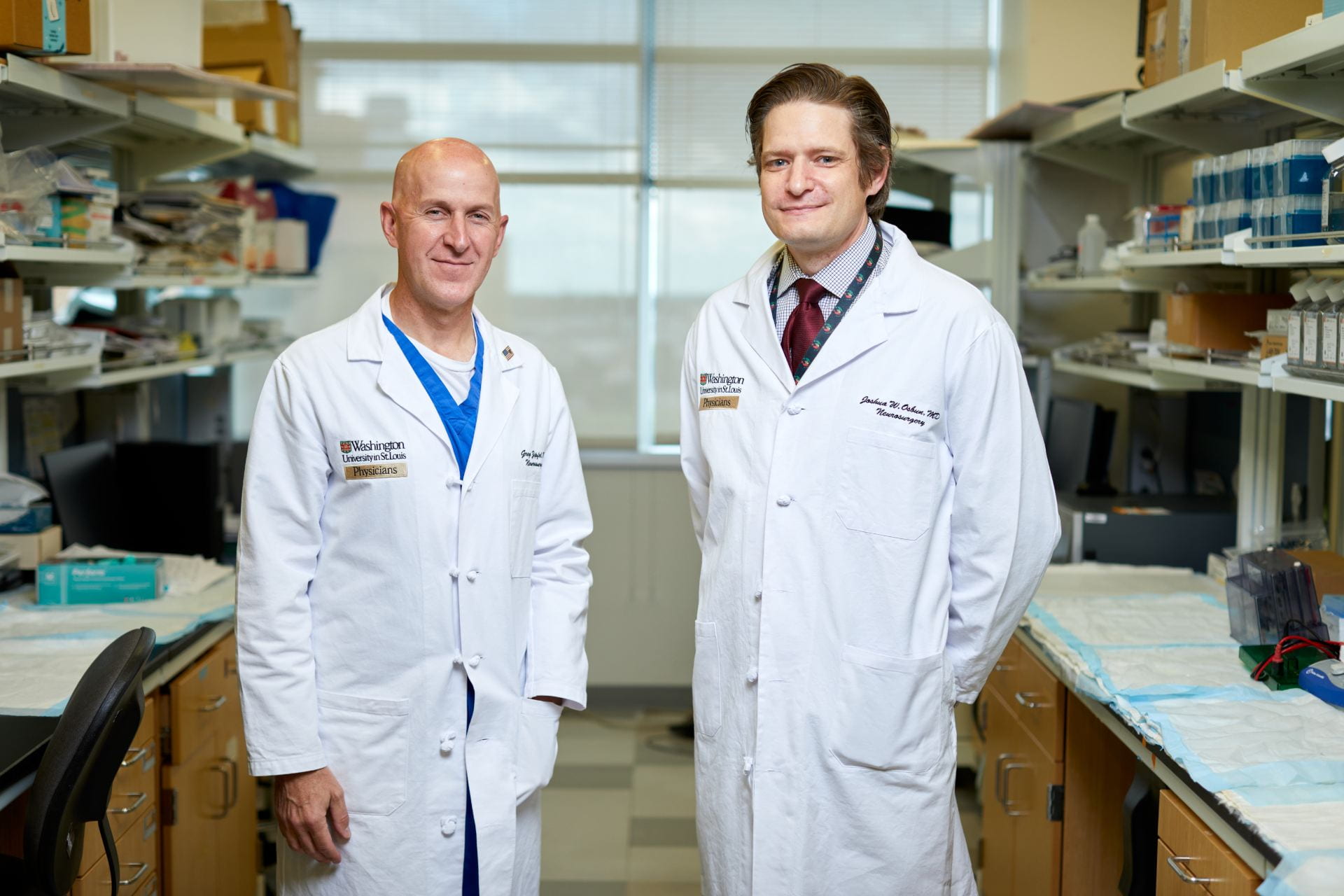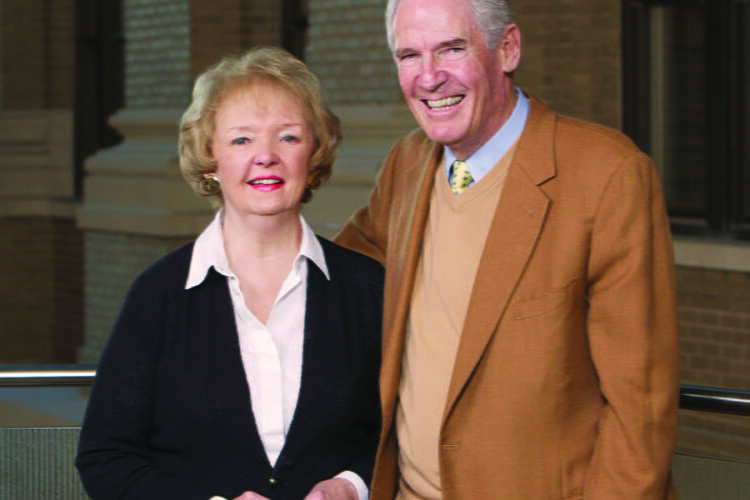Jeffrey Fort believes in the importance of expressing gratitude and acknowledging excellence. These principles have guided his philanthropy at Washington University School of Medicine, to which he has donated more than $9 million over the past decade in recognition of the restorative care he received from WashU physicians.

Most recently, Mr. Fort provided a $5 million gift for the Department of Neurosurgery after being treated for a rare brain abnormality that threatened his life. The gift will extend the department’s leadership in research and patient care and its ability to improve outcomes for those with neurological conditions, particularly blood vessel malformations like the one that affected Mr. Fort.
“I feel very strongly that I should support the people who assisted me when I was in need,” says Mr. Fort, a St. Louis native, award-winning videographer, and founder of several businesses. “I hope my contributions will help patients who come after me.”
Mr. Fort’s relationship with the Department of Neurosurgery began in August 2017, when WashU neurosurgeon Joshua Osbun, MD, performed emergency surgery to address bleeding in his brain caused by a ruptured dural arteriovenous fistula (dAVF). These fistulas occur when irregular blood vessel connections develop between arteries and veins in the tissue covering the brain and spinal cord. When they hemorrhage, the resulting stroke can lead to severe disability or death.
Fortunately for Mr. Fort, Dr. Osbun and other WashU neurosurgeons have special expertise in evaluating and treating dAVFs and similar cerebrovascular disorders. Dr. Osbun was able to stop the bleeding and minimize damage to Mr. Fort’s brain.
Advancing Research and Patient Care
Mr. Fort’s contribution to the Department of Neurosurgery reflects his appreciation for the care he received from Dr. Osbun and his colleagues. Fittingly, a portion of the gift established the Jeffrey T. Fort Innovation Fund in Neurological Surgery for the development of a comprehensive cerebrovascular research center led by Dr. Osbun and Gregory Zipfel, MD, the Ralph G. Dacey Distinguished Professor of Neurological Surgery and head of the Department of Neurosurgery.
According to Dr. Zipfel, the $3 million in critical research support provided through the fund will accelerate efforts to improve treatment for dAVF and other blood vessel malformations as well as aneurysm and stroke. “In particular, we would like to leverage this funding to explore the genetic underpinnings of these conditions,” he says. “That will assist us in developing personalized approaches to patient care.”

In the case of dAVF, this could help physicians uncover ways to prevent the disorder from occurring or determine which patients are at higher risk for stroke from the condition. Instead of undergoing a procedure to close the fistula, which can result in complications, those with lower risk could be observed.
A focus on genetics also could benefit patients with ruptured brain aneurysms. “About 30% to 40% of these patients develop additional brain injury within seven to 10 days after the initial injury, which increases the possibility of having a poor outcome over time,” Dr. Zipfel says. “If we can identify these high-risk patients, we can treat them more aggressively to prevent secondary injury.”
The remaining portion of Mr. Fort’s gift created an endowed professorship. The Margery Campbell Fort Professorship in Neurological Surgery, named in memory of Mr. Fort’s mother, is designated to support a faculty member in the area of pediatric neurosurgery.
“In addition to helping the department recognize an accomplished neurosurgeon, this professorship offers funding to enhance the recipient’s clinical and research programs,” Dr. Zipfel says. “In that sense, it will help us continue our leadership in neurosurgery for the benefit of patients around the globe.”
A Strong Partnership
Mr. Fort’s support for the Department of Neurosurgery builds on his legacy of generosity at the School of Medicine. In 2015, he provided gifts totaling $4 million to the John F. Hardesty, MD, Department of Ophthalmology and Visual Sciences. Decades earlier, ophthalmologists who were associated with the department treated him for chronic glaucoma. Their success in preserving his vision led him to make the donations, which established the Jacquelyn E. and Allan E. Kolker, MD, Distinguished Professorship in Ophthalmology and an endowed innovation fund for retinal disease research.
In 2017, the School of Medicine presented Mr. Fort with the Second Century Award in recognition of his commitment to advancing the school.
Though Mr. Fort is humble about his contributions, Dr. Zipfel says the impact of his philanthropy goes beyond its tangible effects on research and patient care. “When individuals and families enter into a collaboration with us, it energizes our efforts and drives us to keep pushing forward. That level of partnership really can make all the difference in the world.”
Contact us to learn more about supporting advances in health care at Washington University School of Medicine.


